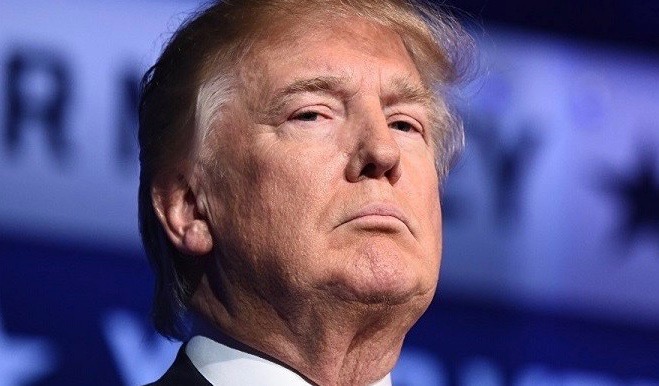SUDAN INSIDER |
This news summary is part of our Sudan Insider, a monthly newsletter providing
news and analysis on Sudan’s biggest stories.
Subscribe here to receive the Sudan Insider in your inbox.
……………………………..
Sanctions decision postponed
What happened…
On July 11 President Trump decided to postpone lifting U.S. economic sanctions on Sudan, extending the decision to October, citing the need to take more time to assess the robust process. A US press briefing the following day said they needed more time to review whether Sudan had made demonstrable progress in five areas listed in the original decision under former U.S. President Barack Obama to lift sanctions.
The statement also said they want to discuss three matters that are not included in the five conditions, pointing to Sudan’s human rights record, religious freedom and its commitment to UN sanctions against North Korea.
Last January, former U.S. President Barack Obama issued an executive order easing the 20-year Sudan sanctions on a probationary basis. The sanctions relief was to become permanent on July 12 after a probationary period to review Sudan’s progress on five conditions including: counter-terrorism cooperation, non-interference in South Sudan’s conflict, maintaining a cessation of hostilities in Sudan’s conflict areas, improving humanitarian access and countering the threat of the Lord’s Resistance Army rebels.
The January executive order provided for the issuance of a general license, allowing open trade over a provisionary six-month period. Other US sanctions issued in 2006 on seven government, militia and rebel leaders in connection to the Darfur conflict will remain in place, as will bans on the trade in weapons. Sudan will also remain on the state department’s list of countries that sponsor terrorism, a list that includes Syria and Iran.
In reaction Sudan’s President Bashir suspended the committee previously negotiating the lifting of sanctions with the US until October 12, the date for the postponed US decision. On July 18, Bashir reversed his decree, however, after consultation with the Saudi King Salman Abdulaziz Al Saud who urged Sudan to continue the joint meetings with US officials for the permanent lifting of economic sanctions. Saudi Arabia is actively engaging with US authorities to urge the removal of sanctions, according to Sudan’s Foreign Minister Ibrahim Ghandour.
U.S. Chargé affairs to Khartoum Koutsis said the lack of staff appointments in key government departments was the main reason for the decision to postpone sanctions relief. The administration is yet to appoint personnel for the Bureau of African Affairs or a special envoy for Sudan.
Koutsis said a letter signed by 53 congressmen urging a delay in the lift of sanctions also played a role in their decision to postpone. The letter urged President Trump to delay until appointing key staff to assist in engagement with Khartoum. The letter also claimed Sudan had not made adequate progress in three of the five conditional areas cited in the January executive order, including the cessation of hostilities, humanitarian access and counter-terrorism efforts.
What it means…
There is equally strong US political support to endorse and to reject the lifting of Sudan sanctions. The fact that the influential US-based policy think tank, the Atlantic Council, calls to lift sanctions and engage with Khartoum may tip the scales in favour of endorsement.
A recent Atlantic Council report claims engagement has engendered success on political and security issues, including the peaceful succession of South Sudan and counter-terrorism cooperation. The Council is comprised of several former US ambassadors, including the former US Special Envoy to Sudan, Princeton Lyman.
Signs Sudan may not be willing to collaborate with the US due to the delay in a potential sanction lift can already be seen. Khartoum has rejected a request by the US embassy in Khartoum to authorize the UN-AU Hybrid peacekeeping force UNAMID to set up a base in the restive Golo area in Jebel Marra, claiming the area was “already safe”.
The decision to postpone was a welcomed move to the Nuba community in South Kordofan State who do not believe President Bashir should be rewarded or trusted to uphold agreements vis-à-vis the sanctions.
Bashir has pledged and breached at least six ceasefire agreements since the conflict in the Nuba Mountains began six years ago. The same government reneged on two signed internationally brokered humanitarian access agreements, in February 2012 and August 2013.
Considering the vast, near autonomous powers given to government-aligned militias, Khartoum may not have the power to control these armed groups and fulfil the US listed conditions to lift sanctions in the first place. The Rapid Support Forces (RSF) militia leader, Mohamed Hamden Daglo, was given the military rank of Lieutenant General –a status equivalent in power to that of the defence minister. This RSF leader, popularly known as “Hemeti”, recently forced policemen to evacuate their station in Nyala, South Darfur, after allegedly ‘purchasing the land’.
Some additional areas of engagement the US seeks with Sudan outside of the five original conditions to lift sanctions point to Sudan’s human rights record, religious freedom and Sudan’s commitment to UN sanctions against North Korea. The latter may be linked North Korea’s sale of 100 air-to-ground missiles to Sudan in two deals worth $6.4 million back in 2013.





